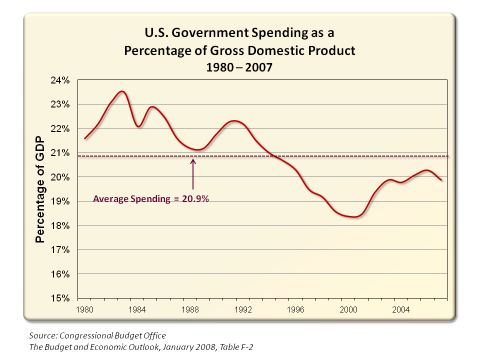Playing the role of semi-official spokesman, Brad DeLong makes the case for the Geithner Plan. At its core, it's the second argument I described in Obama's Vietnam?. Here's DeLong:
Q: What if markets never recover, the assets are not fundamentally undervalued, and even when held to maturity the government doesn't make back its money?
A: Then we have worse things to worry about than government losses on TARP-program money—for we are then in a world in which the only things that have value are bottled water, sewing needles, and ammunition.
Why does the taxpayer have to put up 97% of the money in the form of non-recourse loans, but get only 83% of the upside?
A: The private managers put in $30 billion, but the Treasury puts in $150 billion—and so has 5/6 of the equity. When the private managers make $1, the Treasury makes $5. If we were investing in a normal hedge fund, we would have to pay the managers 2% of the capital and 20% of the profits every year; the Treasury is only paying 0% of the capital value and 17% of the profits every year.
One point for DeLong and Geithner: the taxpayer getting 83% of the upside — if any — is much better than the 0% first rumored.
But the core assumption behind the Geithner Plan, which DeLong endorses, is this: that the so-called 'toxic securities' on bank balance sheets are in fact
risky and distressed but probably fundamentally undervalued assets
You believe that? James K. Galbraith says it's possible to get actual facts ex ante, rather than depending on the Invisible Hand to provide them ex post.
The central Treasury assumption, at least for public consumption, seems to be that the underlying mortgage loans will largely pay off, so that if the PPIP buys and holds, at an above-present-market price governed by auction, the government's loan to finance the purchase will not go bad.
Recovery rates on sub-prime residential mortgage-backed securities (RMBS) so far appear to belie this assumption. IndyMac lost $10.8 bn on a $15bn portfolio (and if you count the wipeout of equity, the total loss is about $12bn). That's an 80 percent loss. It's possible that recovery rates at other banks will be better, but how can we know? No one is examining the loan tapes.
The NYT article points out that pools of RMBS can be sold for about 30 cents on the dollar now. But banks are unwilling to sell for less than 60 cents — either because they really think the loans will experience only a 40 percent loss rate, or because they fear that acknowledging market value will put them into insolvency. Which it might very well.
The way to find out who is right is to EXAMINE THE LOAN TAPES. An independent examination of the underlying loan tapes — and comparison to the IndyMac portfolio — would help determine whether these loans or derivatives based on them have any right to be marketed in an open securities market, and any serious prospect of being paid over time at rates approaching 60 cents on the dollar, rather than 30 cents or less.
Note that even a small loss of capital, relative to the purchase price, completely wipes out the interest earnings on the Treasury's loans, putting the government in a loss position and giving the banks a windfall.
There are only three reasons I can see why one might not adopt Galbraith's suggestion:
- If one believes that the empirical evidence needed is not in fact on those tapes.
- If one believes that the empirical evidence needed may be on those tapes, but extracting and analyzing it would take so long that the crisis would deepen too much before one had the answer.
- If one is afraid to find out the truth because it will cause a Mad Max moment.
Ask yourself this: if the fund proposed by Geithner et al is so great, should we open it up to regular folks to invest? No? Why do you say that?

